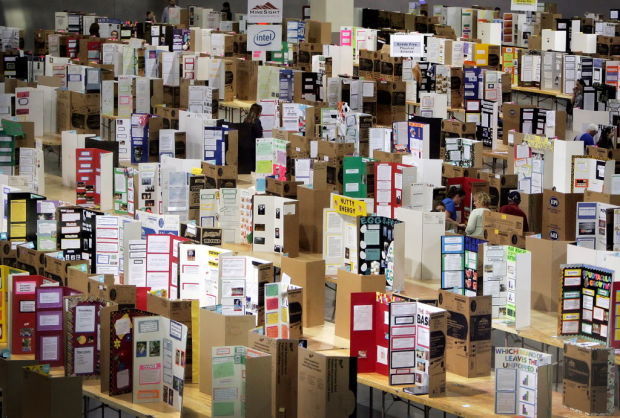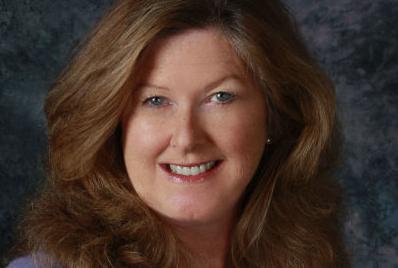This isn’t your father’s science fair.
Instead of paper mache volcanoes, the Southern Arizona Research, Science and Engineering Fair is invading the Tucson Convention Center Wednesday through Saturday with projects featuring microbiology, engineering and more.
The Southern Arizona Research, Science and Engineering Foundation is hosting the annual fair and has been a nonprofit serving Southern Arizona for 61 years, said Kathleen Bethel, the chief executive officer. The participants range from elementary to high school students, and this year’s fair has almost 2,000 entries.
“Primarily, we are helping kids individually fulfill their own dreams and figure out what they want to be in their future,” Bethel said.
Only the top 10 percent of each individual school’s science fair is able to compete, and the winner is eligible to compete nationally in the Intel International Science and Engineering Fair.
One of the entries in this week’s fair belongs to Tucson High School senior Alex Utzinger, who started working in a University of Arizona research lab last fall. Utzinger studied the effect of the invasive buffelgrass on the bacteria that live in the soil for his project. The particular bacteria he was interested in studying help control the level of nitrogen in the soil, an important building block plants use to grow.
“The most exciting thing I’ve learned is the depth that soil affects everything,” Utzinger said, “The soil is the basis of where all life starts, and the food chain sets itself up from there.”
Utzinger became interested in soils after meeting a UA graduate student on a field trip to Mount Lemmon.
“After doing this project, I know that I definitely want to go into biology, and doing this [fair] will greatly help me in future classes,” Utzinger said.
This isn’t uncommon among students in Tucson High’s biotechnology program.
“Many of my former students have gotten Ph.D.s in the fields they started (researching) in high school,” said Margaret Wilch, a biotechnology and research methods teacher at Tucson High.
Wilch has been teaching the research methods course since 1992, and has more than 20 student projects at this year’s fair.
In addition to hosting the fair, SARSEF also works to promote science, engineering, mathematics and technology in Southern Arizona.
“We work year-round to go out into the schools and do educational outreach so we make sure that they get the most instruction in STEM,” Bethel said.
SARSEF works directly with students in their classrooms and also provides workshops for teachers and parents. Last year, they visited 136 schools and reached omore than 32,000 students through their programs. SARSEF tries to focus its efforts on groups underrepresented in science and in schools in rural or impoverished areas.
“We’ve tried to fill in the gaps for the schools that are struggling now to keep up with their funding being cut,” Bethel said.
All the students’ hard work will pay off this weekend thanks to the more than 300 prizes worth more than $100,000, which was donated to SARSEF. “You go see these projects and these kids, and realize the future is not bleak at all,” Bethel said.






